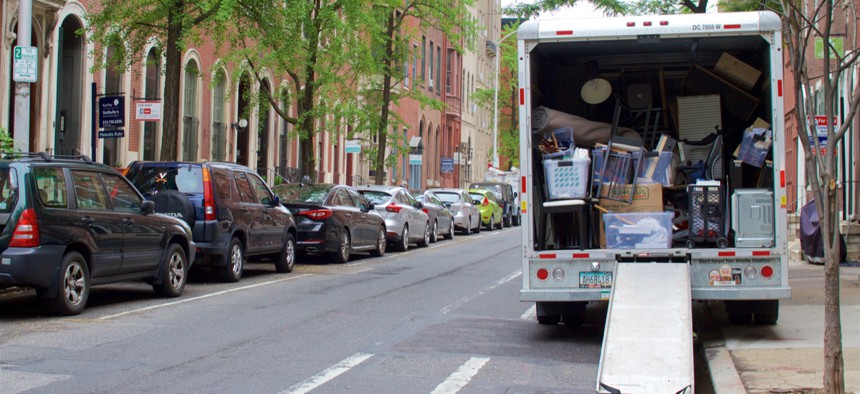Remote Work Has Two-Thirds of Americans Considering Moving from Cities to the Country

Jana Shea/Shutterstock.com
But one in three says bad internet connections would be a deal breaker.
Two out of three Americans would consider moving from cities to rural areas if work-from-home policies made mandatory due to the COVID-19 pandemic become standard, according to a survey released Tuesday.
However, the SatelliteInternet.com survey—which polled 500 people across 50 states—indicates that while a majority of Americans would prefer lower costs of living and larger living spaces, 36% said bad or limited internet access would prevent them from moving to rural areas.
In total, 67% of those surveyed reported that internet availability in an area would affect their decision to move there.
And despite America’s technological prowess, broadband internet is far from ubiquitous. A BroadbandNow’s State of Broadband report released Tuesday found Montana, Wyoming, Maine, South Carolina and Alabama have the lowest access to broadband internet, which the Federal Communications Commission defines as 25 Mbps download and 3 Mbps upload speeds. The states with the best access to broadband are Washington, D.C., Rhode Island, New Jersey, Delaware and New York.
The surveys come in an unprecedented time for both the private and public sector. Across the federal ranks, more than 1 million federal employees and contractors are working remotely—some indefinitely. The pandemic has fundamentally changed the way some agencies, like the Defense Department, perform work. Some agencies are rethinking how to hire employees and contractors. The Centers for Disease Control and Prevention, for example, hired 9,000 remote call center staff amid the pandemic, many of whom live in rural areas. Another agency, the National Nuclear Security Administration, recently onboarded more than 300 employees, many of whom hailed from geographic locations that otherwise would have prohibited employment.
NEXT STORY: FCW Insider: Oct. 27






